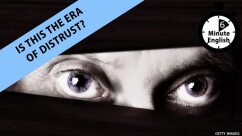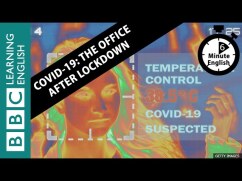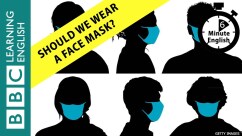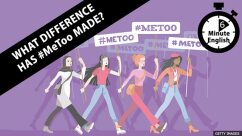Getting Ready for Bed and Going to Sleep.pdf
Getting Ready for Bed and Going to Sleep.mp3
COMPLETE TRANSCRIPT
Welcome to English as a Second Language Podcast number 11: Getting Ready
for Bed and Going to Sleep
This is English as a Second Language Podcast episode number eleven. I’m your
host, Dr. Jeff McQuillan, coming to you from the Center for Educational
Development in beautiful Los Angeles, California.
In this episode, the last of our 10-part special series on daily English, I’ll talk
about getting ready for bed and going to sleep.
Let’s get started!
[Start of story]
At 10:30, I decide to get ready for bed. When I was little, my mother would read
me a bedtime story. I’m looking forward to having that ritual with my own kids
someday.
I go into the bathroom and turn on the tap. I wash my face, and dry it with my
towel. I floss and brush my teeth. I have to admit that by this time, I’m beat, and
so is my wife. She cleans up when I’ve finished up.
In the meantime, I walk into the bedroom and get undressed. I put my dirty
clothes in the hamper and I put on my pajamas. Wearing my slippers, I go into
the kitchen to get a glass of water to put next to the bed in case I need it during
the night. I pull back the covers, fluff my pillow, and climb into bed. I set my
alarm clock for 6:15, and turn off the overhead light. I lay my head down and pull
up the covers, kissing my wife goodnight. Some nights I have trouble falling
asleep, but tonight, I didn’t need to count any sheep. I nod off right away and
before long, I’m fast asleep.
[End of story]
This episode is called "Getting Ready for Bed and Going to Sleep."
"At 10:30, I decide to get ready for bed," to do the things I need to do so I can go
to sleep. "When I was little, my mother would read me a bedtime story."
“Bedtime” (bedtime) – all one word – is, of course, the time that you go to bed -
that you go to your bed so you can sleep. A bedtime story is a story you would
these materials on another website or distributing them in any way is prohibited.
tell a child to help them fall asleep. Many children like to be told a bedtime story.
These are often what we would call “fairy tales” (fairy) “tales” (tales). A “tale” is
just another word for a story, and a fairy tale is a story about something that isn't
true, usually with imaginary characters.
"I’m looking forward to having that ritual with my own kids someday." "I’m looking
forward to having that ritual." A “ritual” (ritual) is something that you do on a
regular schedule or at a regular time every day or maybe every week or every
month, and you do the exact same things in the exact same order. We also use
that word, ritual, when we are talking about some religious ceremonies. Some
religious events have certain rules - certain order - a certain order that they
follow, and that is a ritual.
"I go into the bathroom and I turn on the tap." The “tap” (tap) is the same as the
faucet. Well, you turn on the tap so the water comes out. "I wash my face, and
dry it with my towel." I dry my face - I make it dry using a “towel” (towel) which is
a cloth that you use to dry yourself, or to clean yourself. I floss my teeth and I
brush them.
"I have to admit that by this time, I’m beat." "I have to admit" is an expression
that we use when you're going to say something that maybe you don't want to
say - you don't want to tell the truth. In fact, there's also an expression, "to tell
the truth." So, I have to admit means I have to say - to tell the truth. "By this
time," meaning by 10:30 - "by this time, I’m beat." To be beat, "beat," means to
be very tired. Someone says, "Oh, I'm beat," they've been working all day or
they've, like me, been watching television all day, and now I'm beat - I'm tired. Of
course, I don't watch television all day, just part of the day!
Well, my wife is also beat. In the story I say, "I'm beat, and so is my wife,"
meaning my wife is also very tired. "She cleans up when I’ve finished up." Once
again, you see those two-word verbs. To clean up is, in this case, to clean your
face, to brush your teeth; to get yourself clean is to clean up. “To finish up” is
really the same as to finish, but we love in English to use those prepositions as
part of these two word verbs. So, I finish up, meaning I finish doing what I need
to do, and then my wife goes into the bathroom and cleans up.
"In the meantime," meaning while my wife is doing that. "In the meantime"
(meantime) – all one word – I walk into the bedroom and get undressed." So,
when my wife is in the bathroom, "I walk" - at the same time - "into the bedroom
and I get undressed." “To get undressed” is the opposite of to get dressed. So,
if you get undressed, you take off your clothes.
"I put my dirty clothes" - the clothes I was wearing - "in the hamper and I put on
my pajamas." A “hamper” (hamper) as a noun, is a place, usually in your
bedroom or bathroom, where you put dirty clothes or dirty towels; we call that a
hamper. “To hamper,” as a verb, means something different. “To hamper
someone” means to get in their way - to prevent them from doing something. But
as a noun, a hamper, or a clothes hamper, is a place, usually it's a big plastic box
with a top on it, or it could be made of wood, and that's where you put your dirty
clothes. And then, at some point during the week, I hope, you wash your clothes
so you can have clean clothes again. Unless, of course, you're not married, in
which case, if you are a man and single, you may not wash your clothes that
much.
Well, I have "my dirty clothes in my hamper," and since I don't have any clothes
on, remember I have undressed, "I put on my pajamas." “Pajamas” (pajamas)
are sometimes abbreviated as “PJs” (PJ) – PJs. Your pajamas, or PJs, are the
clothes that you wear when you are going to bed. For example, I have pajamas
that say Superman on it, and I wear my Superman pajamas to bed. Doesn't
everyone?
Well, in addition to putting on my pajamas, I also put on my slippers. A “slipper”
(slipper) is a shoe that you wear usually just inside the house. So, when you are
getting ready for bed and you want to walk around the house, you don't put your
shoes on, you would put some slippers on. Some people wear slippers in their
house, especially if the floors are cold, and they'll put the slippers on at night and
have them on at night as they walk around in their house or in the morning.
Well, "Wearing my slippers, I go into the kitchen to get a glass of water," and I
want to put that water "next to my bed in case I need it during the night." So, if I
need to drink water at night, I have a glass of water next to me. "I pull back the
covers." The “covers” (covers) are the blanket, the comforter, and the top
sheets. We take those things and we have to pull them back. To pull back
means to take them and move them towards the bottom of the bed so that you
can get in, and after you get in, you're going to pull the covers up. So, you pull
back the covers to get into the bed, and then you pull them up to cover you again
so you can stay warm.
"I pull back my covers," and I "fluff my pillow." The pillow is what I put my head
on. “To fluff” (fluff) means to make your pillow bigger by hitting it very softly on
the sides. So, you take your pillow and you put one hand on each side of the
pillow and you move your hands back and forth toward each other and away
Posting of
these materials on another website or distributing them in any way is prohibited.
from each other, and that allows the pillow to be a little bigger - to be a little
softer.
"I fluff my pillow, and I climb into bed." Notice that verb “to climb” (climb) into
bed. It means the same as to get into bed. We might use that particular verb, to
climb into, if we are very tired, for example. You can also use it just to mean to
get into bed.
So, I "climb into bed. I set my alarm clock for 6:15," - for 6:15 in the morning, of
course - "and I turn off the overhead light." The “overhead” (overhead) – all one
word – is a light that is on the top of your room - on the ceiling of the room. The
top of the room is called the “ceiling” (ceiling). So, an overhead light is on the top
of the ceiling - or on the ceiling, and I turn the overhead light off.
"I lay my head down." “To lay” (lay) here means to put something down. Usually
we use that verb when we are talking about people or a part of your body. "I lay
my head down and I pull up the covers," so I am warm, and because I'm such a
great husband, I kiss "my wife goodnight." “To kiss someone goodnight,” means
to kiss them and in a sense, to say goodnight to them. "Some nights I have
trouble falling asleep." “To fall (fall) asleep (asleep)” means to go to sleep - to
start sleeping.
Sometimes "I have trouble falling asleep, but tonight, I didn’t need to count any
sheep." The expression “to count sheep” (sheep) is used because we
traditionally when we are trying to fall asleep, some people say that it helps if you
try counting numbers, so you start with one, two, three, four. And, for some
reason, I don't know why, it is traditional to count sheep. Sheep are a type of
animal. A sheep is an animal that you take the hair off of, and you use the hair of
the sheep to make clothing, for example. I don't need to count sheep because
I'm very tired. If you are not tired or you have difficulty falling asleep, you might
want to try counting sheep. One, two, three, four, and by the time you reach five
million you should be asleep!
"I nod off right away." “To nod (nod) off” – two words – means the same as to fall
asleep. It's just another way of saying fall asleep, "I nod off." Sometimes people
will use that expression when they're at a meeting and it is very boring at work,
and you may say to someone, "I almost nodded off" - I almost fell asleep. That
usually happens to my students when I am teaching.
"Before long," meaning in a very short time – "before long, I’m fast asleep." “To
be fast (fast) asleep” means to be completely asleep. There's a similar
expression that means the same, “to be sound asleep” (sound). “To be sound
asleep” means that you are sleeping completely, it will not be easy to wake you
up.
Now let's listen to the story, this time at a native rate of speech.
[Start of story]
At 10:30, I decide to get ready for bed. When I was little, my mother would read
me a bedtime story. I’m looking forward to having that ritual with my own kids
someday.
I go into the bathroom and turn on the tap. I wash my face, and dry it with my
towel. I floss and brush my teeth. I have to admit that by this time, I’m beat, and
so is my wife. She cleans up when I’ve finished up.
In the meantime, I walk into the bedroom and get undressed. I put my dirty
clothes in the hamper and I put on my pajamas. Wearing my slippers, I go into
the kitchen to get a glass of water to put next to the bed in case I need it during
the night. I pull back the covers, fluff my pillow, and climb into bed. I set my
alarm clock for 6:15, and turn off the overhead light. I lay my head down and pull
up the covers, kissing my wife goodnight. Some nights I have trouble falling
asleep, but tonight, I didn’t need to count any sheep. I nod off right away and
before long, I’m fast asleep.
[End of story]
Make listening to her scripts part of your daily English learning ritual. I speak of
our very own scriptwriter, Dr. Lucy Tse. Thank you, Lucy!
From Los Angeles, California, I’m Jeff McQuillan, thank you for listening. Come
back and listen to us again right here on ESL Podcast.
This course has been a production of the Center for Educational Development, in
beautiful Los Angeles, California.
GLOSSARY
bedtime story – a story that adults read to children before they go to sleep at
night
* Can you read me one more bedtime story before I have to go sleep?
ritual – something that is done repeatedly and in the same way every time
* His morning ritual includes drinking a cup of coffee, eating a banana, and taking
the dog for a walk.
tap – faucet; the metal thing that water flows through into a sink
* Please turn off the tap while you’re brushing your teeth. It’s wrong to waste
water.
towel – a soft piece of fabric that absorbs water and helps someone or
something become dry
* Yuki always uses two towels when she showers: one for her body, and one for
her hair.
beat – very tired; exhausted
* After working on the report for 14 hours, I was beat and I wanted to go to sleep.
undressed – without clothes; not wearing clothes; naked
* You should always close the bedroom curtains before you get undressed.
hamper – a container for dirty clothes
* Make sure you do the laundry when the hamper is full.
pajamas – clothes worn while sleeping
* My cotton pajamas are the most comfortable clothes that I own. I love sleeping
in them.
slippers – soft, warm shoes that are worn only inside the house
* She often puts her slippers in front of the fireplace to warm them before she
puts them on her feet.
to pull back – to fold back; to move back
* When she heard the doorbell, she quietly pulled back the curtains to see who
was at the front door.
covers – the layers of fabric that cover a bed
* Our cat likes to sleep in our bed under the covers, but we don’t allow her to do
that.
to fluff – to make something larger and softer by hitting or brushing it
* I can’t sleep on a hard pillow so I always fluff my pillows at night.
overhead – on the ceiling; over one’s head
* Overhead lights are good in living rooms and dining rooms, but in bedrooms I
prefer a small table lamp so that I can read before falling asleep.
to lay down – to put something or oneself in a horizontal (sideways) position
* I laid down the book I had been reading and turned out the lights.
to fall asleep – to begin to sleep
* Drinking a glass of warm milk often helps Jacomo fall asleep at night.
to count sheep – to imagine sheep jumping over a fence and to count them as a
way of falling asleep
* Do you ever try counting sheep when you have trouble falling asleep?
to nod off – to start to sleep, often without intending or wanting to
* He was so tired that he was nodding off during the meeting. His boss was not
happy.
fast asleep – sleeping soundly; sleeping very well; sleeping and unaware of
other things happening
* The little boy was fast asleep when they got home and he didn’t wake up as his
father carried him to bed.









